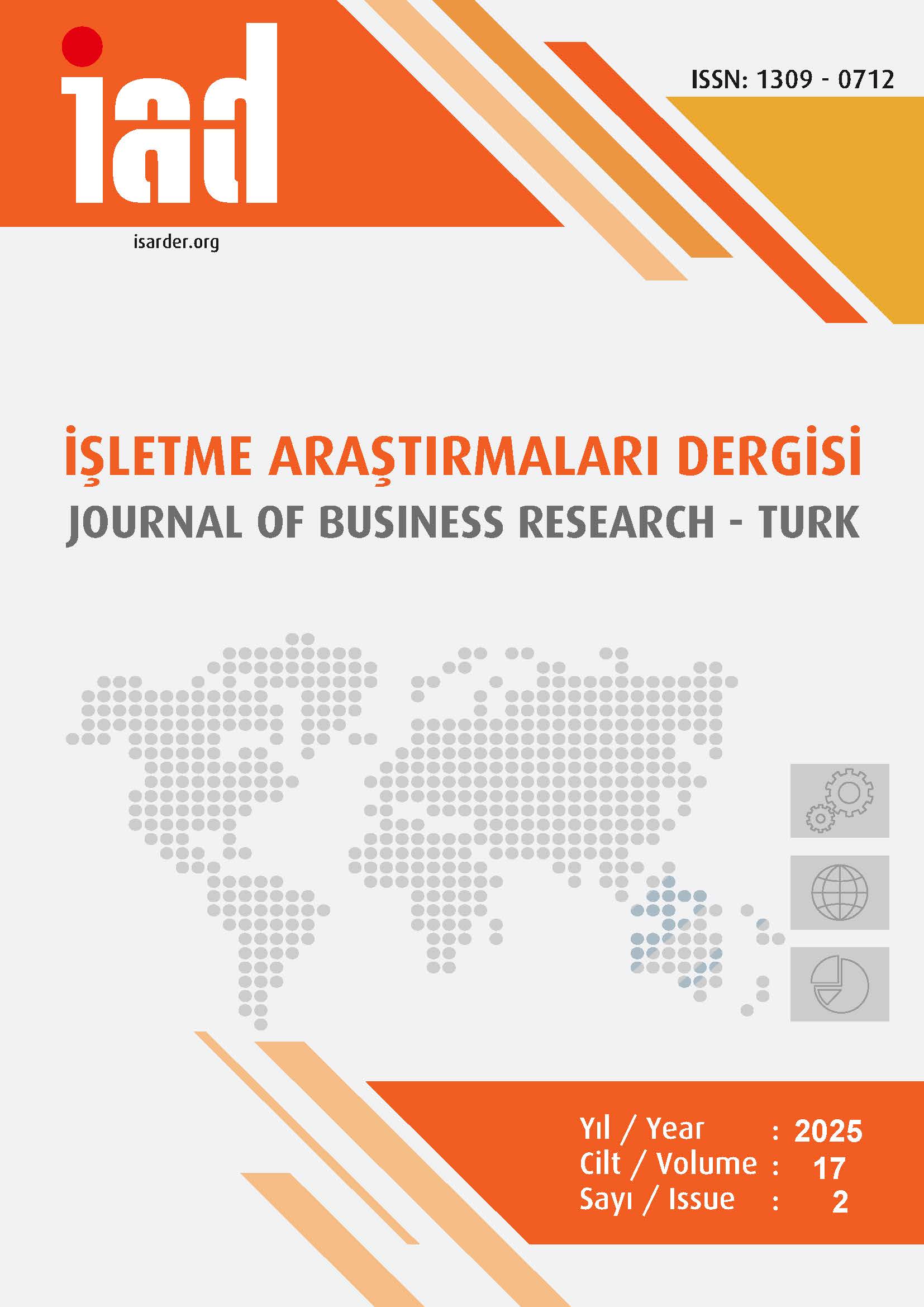The Impact of Financial Development, Foreign Direct Investment, Energy Production and Trade on GDP: Evidence from Turkey
DOI:
https://doi.org/10.20491/isarder.2025.2049Keywords:
Financial Development, Economic Growth, Energy, ARDLAbstract
Purpose – The aim of this study is to investigate the impact of financial development on GDP under the shadow of foreign direct investment (FDI), energy production (EU) and trade openness (TO) for the period 1985-2021 in Turkey. For this purpose, the financial markets index (FPE) and financial institutions index (FPI) announced by the IMF were included in the model as financial development indicators.
Design/methodology/approach – The present study employs the autoregressive distributed lag (ARDL) model to analyse the impact of financial development on GDP. The ARDL model integrates the concepts of cointegration, long-run analysis, and short-run analysis, thereby providing a comprehensive framework for investigating economic dynamics.
Findings – According to the results of the study, there is a very strong cointegration relationship between the variables. While FPE and FPI positively affect GDP, the impact of FPI on GDP is much higher than FPI.
Discussion – This result indicates that financial development in Turkey is a factor that encourages growth, and for this purpose, financial markets should be developed in a way that will increase the impact of FPI on growth. Finally, the impact of energy production and trade openness on growth in Turkey is positive, while the impact of FDI on growth is negative. For this purpose, it is necessary to encourage domestic energy production and especially exports, reduce external dependency on energy, and develop policies that encourage FDI inflows that contribute to growth.
Downloads
Published
How to Cite
Issue
Section
License

This work is licensed under a Creative Commons Attribution-NoDerivatives 4.0 International License.





